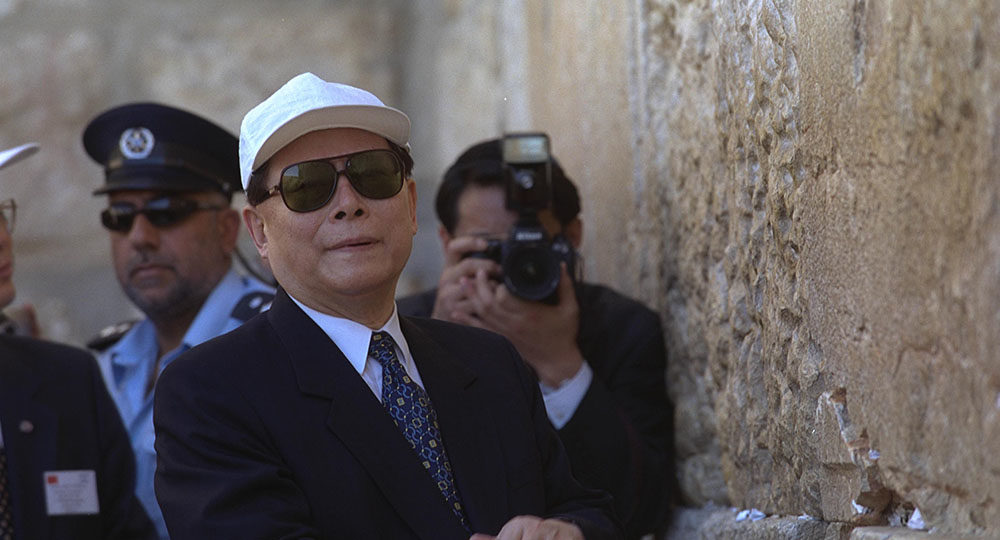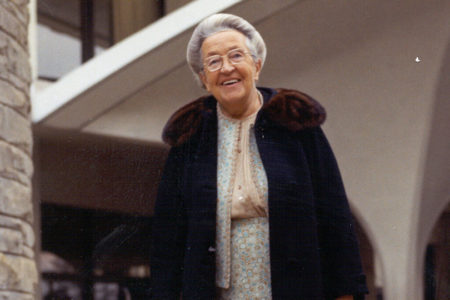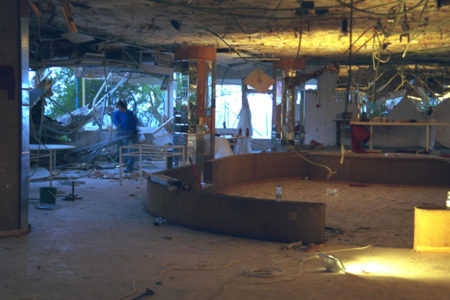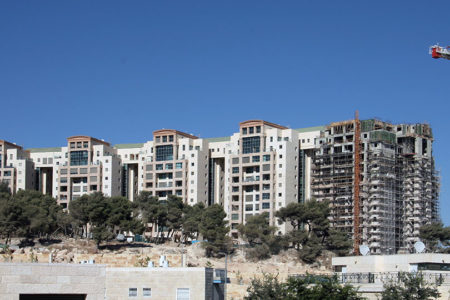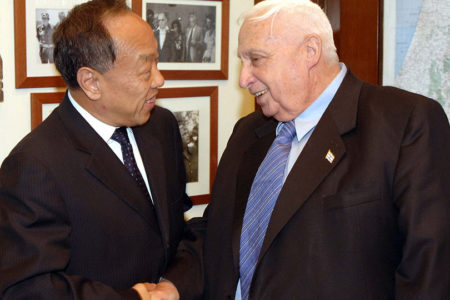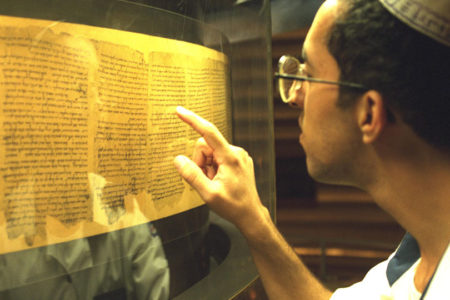How China Shifted Toward the PLO
Almost as soon as Jerusalem’s foreign policy apparatus was up and running after the 1948 War of Independence, Israel sought diplomatic relations with China.
Since Washington didn’t establish formal ties with Beijing until 1979 during Jimmy Carter’s administration, the Jewish state’s recognition of China in January 1950 risked alienating the Eisenhower administration.
In fact, when Israeli Foreign Minister Moshe Sharett cabled Jerusalem’s recognition to Chinese Foreign Minister Zhou Enlai, Israel became the first Middle East country to recognize the People’s Republic of China (PRC). Formal diplomatic relations, however, were not attempted out of deference to American sensitivities and Cold War tensions.
During the Korean War (1950–53), both Israel and the Arab states sided with Washington at the UN, branding the PRC the “aggressor.” Never -theless, Israel consistently supported China’s entry into the UN, which finally occurred in 1971 at the expense, regrettably, of Taiwan.
David Hacohen, Israel’s Man in Asia
Behind the scenes throughout the mid-1950s, a lone, Asia-based Israeli diplomat named David Hacohen was struggling to foster ties between China and Israel. Hacohen (1897–1984) was born in Russia, came to Israel in 1907, and joined the left-wing Mapai Party (a precursor to Labor). He became Israel’s first ambassador to Burma and used his Rangoon base to promote Israel’s interests throughout Asia. Hacohen later became a Knesset member and chairman of its Foreign Affairs and Defense Committee.
Although the Korean War put a hold on Israeli overtures toward Peking, as Beijing was then called, Hacohen persisted in lobbying the Ministry of Foreign Affairs to improve ties with China. In December 1953, he met with Chinese Ambassador Yao Chu Ming who, he said, told him that China “was interested in finding out why we chose to send a minister to Burma and wondered whether we had ever considered a similar strengthening of ties to China.”
The two diplomats remained in touch. The following year, Yao told Hacohen that China wanted to establish trade relations (presumably to get around the American economic embargo of China).
But back in Washington, Israel’s ambassador to the United States, Abba Eban—under State Department pressure—was pulling the Ministry of Foreign Affairs in the opposite direction. Eban would prevail.
Nevertheless, in June 1954 the indefatigable Hacohen met with Foreign Minister Zhou Enlai in Rangoon, Burma. The Chinese leader invited the Israeli to “visit me when you are in Peking.”
A few days later, Zhou told the People’s Congress that negotiations were underway to establish normal relations with Israel. By now, though, Eban thought he was moving toward closing an arms deal with Washington—which wanted to isolate the Chinese Communists—so Hacohen had to forgo the opportunity of a further meeting with Zhou.
The momentum toward an Israel-China relationship had been halted, with devastating consequences.
Israel Loses China
The first intimation that China had abandoned the prospect of ties with Israel came in April 1955 at an international conference in New Delhi, India. The Chinese delegation voted to support a resolution that called on Israel to accept the return of the Arabs who fled during the 1948 War of Independence.
But the real turning point came during the 1955 Bandung Conference, which Egypt helped to organize and that brought together Asian and African states, most of them newly independent. The conference wanted to establish an alignment of countries that had allied themselves with neither the West nor the Soviet Bloc. China was keenly interested in playing a leading role in this so-called Third World movement.
It was at Bandung, Indonesia, that Zhou first met Egypt’s Gamal Abdel Nasser and heard a full exposition of the Arab case against Israel’s establishment as a Jewish state in the Middle East.
Ahmed Shukeiry, who would become the first leader of the Palestine Liberation Organization (PLO) when it was established by the Arab League in 1964, joined Nasser in his meetings with Zhou.
Although the Chinese leader made only a modest public reference at Bandung to the Arab-Israeli conflict, it was highly significant: “The problem of Arab refugees of Palestine still remains to be solved,” he said.
Throughout the remainder of the 1950s, 1960s, and well into the mid-1970s, China’s political system grew ever more radical. Beijing’s dealings with Washington became increasingly acrimonious, and after Stalin’s death in 1953, Mao Zedong also began to lose faith in the Soviet politburo.
Sino-Soviet ties ruptured completely in 1959. China now viewed everything—including the Palestinian issue—through the lens of superpower rivalry.
It was in this fanatical revolutionary context that China’s denunciations of Israel became more strident and vitriolic.
In March 1965, Mao hosted a delegation from the newly founded Palestine Liberation Organization. He told them,
You are one gate of the great continent. We are the other. They created Israel for you and Formosa for us. Their goal is the same: to exploit us. The West does not like us. We must understand this fact. The Arab battle against the West is the battle against Israel. So boycott Europe and America, O Arabs.
